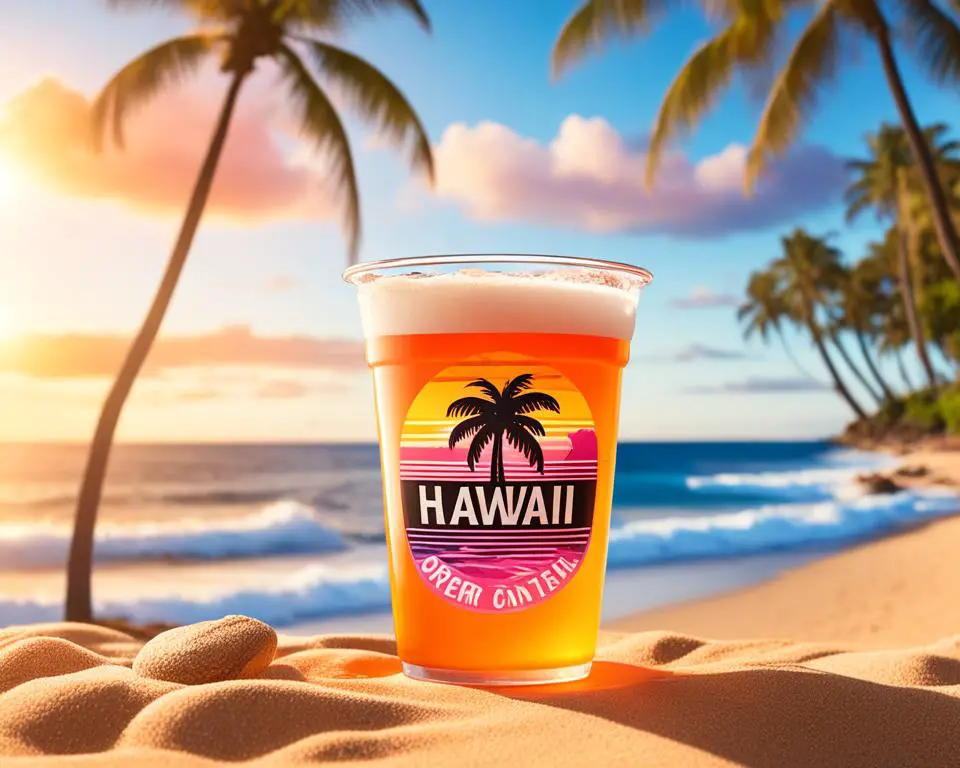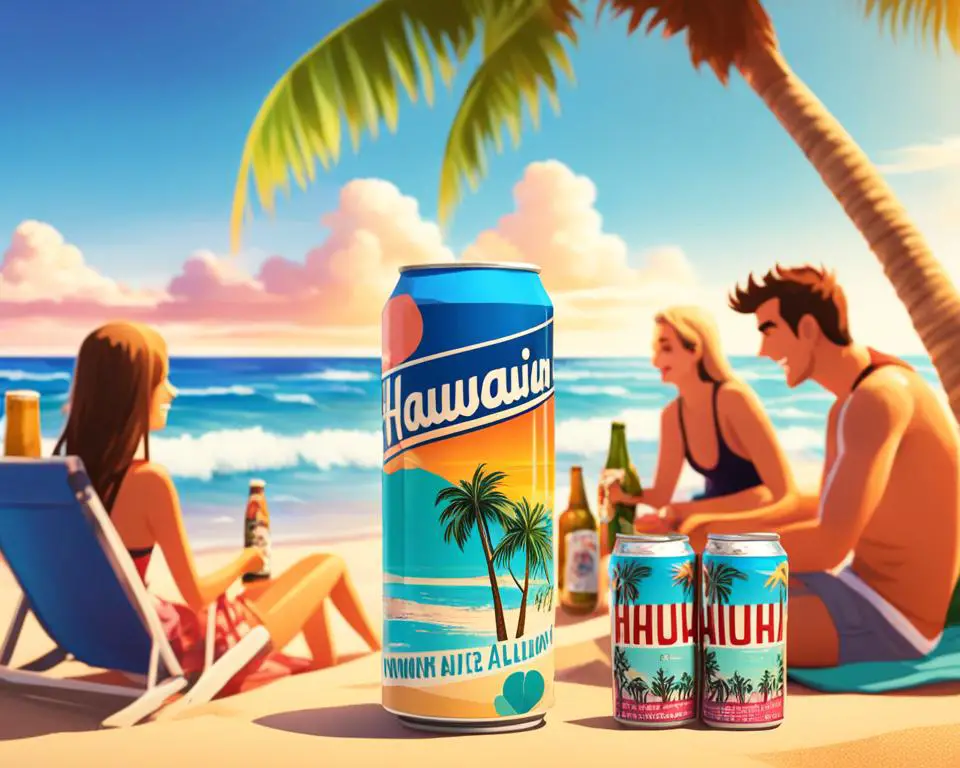When it comes to alcohol laws, there is often confusion and misinformation surrounding what is permitted in different states. In Hawaii, the legal drinking age is 21 years old, just like in most other states. However, did you know that there are exceptions for 18-year-olds when it comes to drinking under the supervision of their parents or legal guardians? Yes, you heard that right! In certain circumstances, 18-year-olds can enjoy a drink with their parents in the beautiful islands of Hawaii.
Underage drinking exceptions in Hawaii allow minors to consume alcohol in a private area as long as their parents or guardians are the ones providing it. This means that if you are 18 years old and out for a family dinner or celebration, your parents can legally share a drink with you. It’s a unique provision that challenges common beliefs and offers a different perspective on responsible alcohol consumption.
Furthermore, in most counties in Hawaii, servers who are 18 years old are also allowed to serve alcoholic beverages under the careful supervision of someone who is 21 or older. This emphasizes the importance of responsible service and ensures that even young adults can gain valuable experience in the hospitality industry.
It’s important to note that Hawaii is a licensed state, and the specifics of alcohol laws may vary between counties. So, before you raise your glass, be sure to familiarize yourself with the specific regulations in the area where you’ll be enjoying your night out.
Key Takeaways:
- Hawaii has exceptions that allow 18-year-olds to drink under the supervision of their parents or legal guardians.
- Minors can consume alcohol in a private area as long as their parents or guardians provide it.
- 18-year-old servers in Hawaii can serve alcoholic beverages under the supervision of someone who is 21 or older.
- Alcohol laws may vary between different counties in Hawaii, so it’s essential to know the specific regulations.
- Hawaii encourages responsible alcohol consumption and offers unique provisions for families to enjoy a drink together.
Important Hawaii Alcohol Laws to Know

When it comes to alcohol laws in Hawaii, there are several important regulations to be aware of. Understanding these laws can help you stay compliant and avoid legal issues. Here are some key alcohol laws in Hawaii:
Hawaii Open Container Law
The Hawaii open container law prohibits individuals from consuming or possessing an open container of alcohol in a vehicle, even if the driver is not drinking. This law aims to prevent any potential distractions or impairment caused by alcohol in a vehicle. To comply with the open container law, open containers must be stored in the trunk. If the vehicle doesn’t have a trunk, they should be placed behind the rearmost seat.
Dram Shop Law
The dram shop law in Hawaii holds bar and restaurant owners responsible for serving alcohol to an intoxicated patron who causes injury or damage. This law helps ensure that establishments serving alcohol responsibly monitor the alcohol consumption of their patrons to prevent any harm or accidents.
Liquor Sale Hours
Hawaii has specific regulations regarding the sale of alcohol. The sale of liquor is permitted between the hours of 6:00 a.m. and 12:00 a.m., except on Sundays. On Sundays, alcohol can only be sold between the hours of 6:00 a.m. and 11:00 p.m.
DUI Laws in Hawaii
Driving under the influence (DUI) laws in Hawaii are strict to ensure the safety of everyone on the road. It is illegal to operate a vehicle with a blood alcohol concentration (BAC) of 0.08% or higher. For drivers under the age of 21, the legal limit is 0.02% BAC. Violating DUI laws can result in fines, license suspension, and even jail time.
Understanding and following these important alcohol laws in Hawaii is essential to maintaining a safe and responsible drinking environment. Be sure to familiarize yourself with these regulations to avoid any legal consequences.
Obtaining Liquor Licenses and Bartending Licenses in Hawaii
If you’re interested in obtaining a liquor license in Hawaii, the process can be complex and vary depending on the license type and county. To begin, you’ll need to complete a liquor license application, providing all necessary information and documentation required by the Hawaii Liquor Commission. This includes details such as your personal and business information, the type of license you are applying for, and any supporting documents requested.
Once your application is submitted, you will likely undergo an interview and investigation conducted by the commission. This is done to ensure that you meet all the requirements and qualifications for obtaining a liquor license. During this process, they may ask for additional information or clarification on certain aspects of your application.
After the initial review and investigation, you may be required to attend preliminary and public hearings. These hearings provide an opportunity for the public to voice any concerns or objections regarding your liquor license application. It’s important to be prepared to address any questions or issues that may arise.
Once your license application has been approved by the Hawaii Liquor Commission, you will be required to pay the necessary fees. The cost of a liquor license in Hawaii can vary depending on the type and county. It’s essential to familiarize yourself with the specific fees associated with your license type to ensure compliance.
FAQ
Q: Can 18-year-olds drink with their parents in Hawaii?
A: Yes, under certain circumstances. In Hawaii, 18-year-olds are allowed to drink under the supervision of their parents or legal guardians. Minors can consume alcohol in a private area as long as their parents or guardians provide it.
Q: What are some important alcohol laws to know in Hawaii?
A: There are several important alcohol laws in Hawaii. The open container law prohibits individuals from consuming or possessing an open container of alcohol in a vehicle. The dram shop law holds bar and restaurant owners responsible for serving alcohol to an intoxicated patron who causes injury or damage.
Q: What is the process for obtaining liquor licenses and bartending licenses in Hawaii?
A: The process for obtaining liquor licenses in Hawaii can be complex and varies depending on the license type and county. Generally, it involves completing a liquor license application, undergoing an interview and investigation, attending preliminary and public hearings, having the license approved, and paying for the license. The entire process can take up to three months or more.
